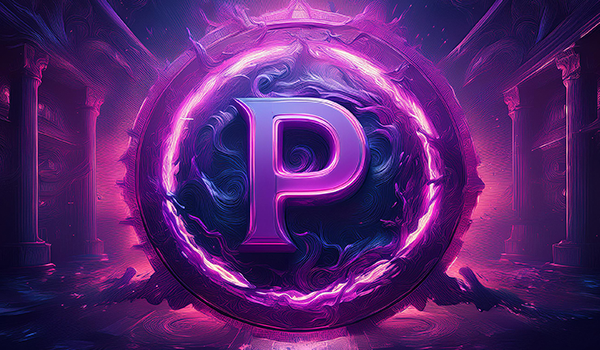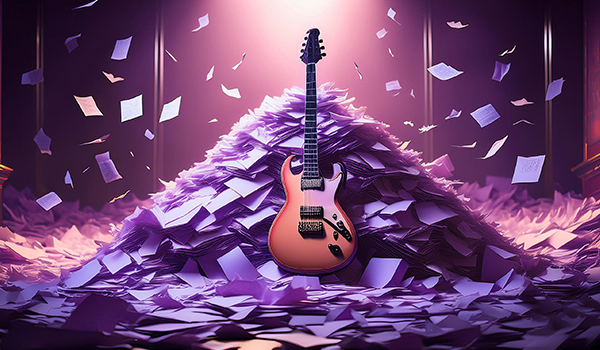Know Your Rights: Intellectual Property in the Music Industry and the Music Modernization Act.
Copyright, Trademarks, and Patents Explained
Intellectual property and music go hand-in-hand. Intellectual Property or “IP” for short—is the cornerstone of the music business. The IP that artists create, own, control, and license is how they get paid and protect their artistic creations. The fundamental forms of IP in the music industry are: copyrights, trademarks, and patents.
What do copyrights, trademarks, and patents have in common?
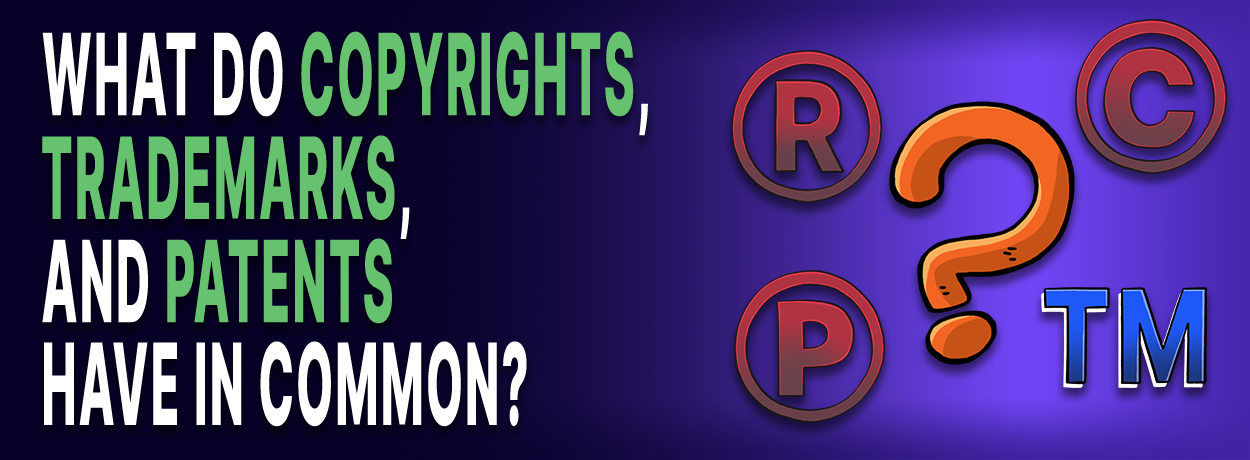
They are all creations of the mind. These creations can be artistic and literary works (copyrights), names and logos used in commerce (trademarks), or inventions (patents). Let’s take a closer look at each form of IP, and some examples of intellectual property in music.
A key component of copyrights in the music industry is the ‘musical work’, which is automatically protected as soon as it is fixed in a tangible form, such as compositions and sheet music. This protection is crucial for safeguarding the rights associated with the music, lyrics, and other content included in the recording.
Copyright and intellectual property infringement
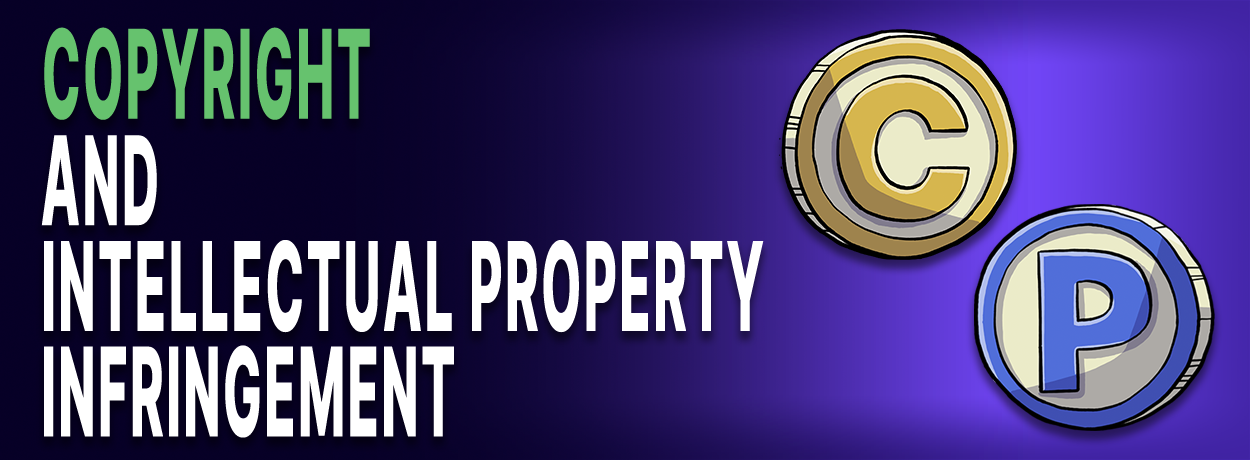
A copyright is an original work that is fixed in a tangible form, such as an audio file. The “originality” aspect means it wasn’t copied from another work, and fixation means that it has been recorded or transferred in some permanent way—like writing down song lyrics, or recording a melody on your phone.
An audiovisual work, while related to sound recordings, involves both sound and visual elements and is distinguished in copyright law from mere recordings of sounds. Examples of works that can be copyrighted are: musical compositions (songs), sound recordings, films, and literary works (books). The moment that an original work is fixed, a copyright is created. If you write a great new song in your bedroom and record it on your laptop, a copyright has been created. That copyright is owned by its author, the copyright holder, whether it’s an individual or joint authors.
Record labels play a crucial role in the administration and ownership of master recording copyrights, managing digital performance royalties from platforms like Pandora or satellite radio, and ensuring the rights to sound recordings are protected under traditional artist deals or newer licensing agreements.
The only time a copyright isn’t automatically owned by its author is when it’s created on a “work-for-hire” basis. Under copyright law, a “work-for-hire” is a work specifically commissioned by a third party, who is deemed to its author.
How do copyrights and music work?
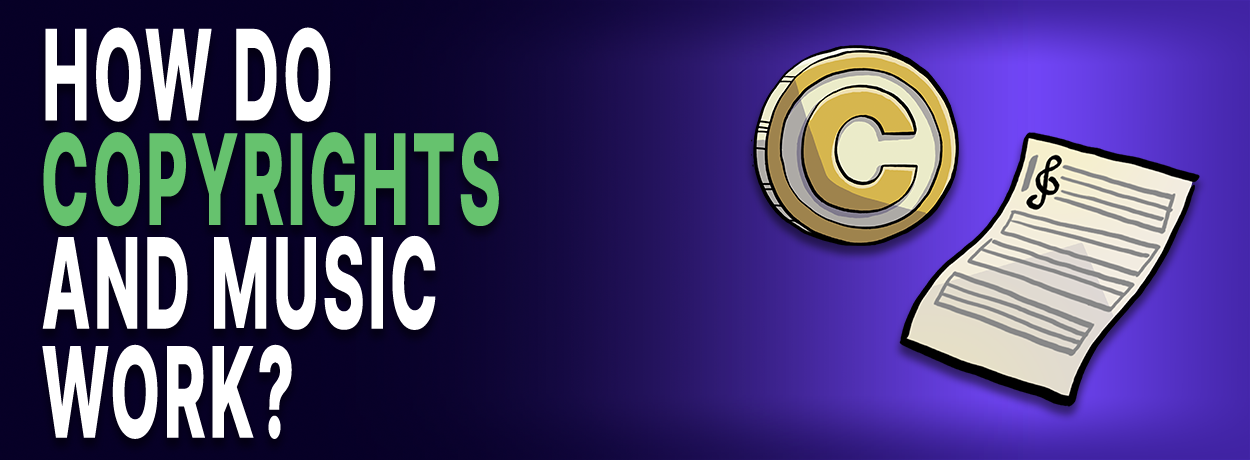
All copyright owners have certain exclusive rights which include the right to: Protect musical works, such as sheet music, ensuring their distribution and sale are regulated under copyright law.
-
Reproduce the work
-
Distribute copies of the work
-
Publicly perform the work
-
Create derivative works
-
Display the work
Federal copyright protection, particularly significant since 1972, has enabled sound recordings to be copyrighted, distinguishing between the material recorded and the sound recording itself and setting eligibility requirements for copyright protection.
Every recorded song has two copyrights: one in the musical composition, and one in the sound recording. Under intellectual property law, music licensing is the use or exploitation of these exclusive rights. This is how music generates income, with sound recording copyright playing a crucial role in the music industry's revenue streams:
Recording |
Composition |
|
|
REPRODUCTION |
Streaming a recording or including it on a CD or vinyl LP. | Duplicating sheet music of a song |
| DISTRIBUTION | Uploading a recording to a streaming service (e.g., Spotify), for digital sale (e.g.,iTunes), or selling vinyl LPs or CDs | Granting another artist permission to distribute recordings of your composition in physical and digital formats |
| PUBLIC PERFORMANCE |
Limited to streams and broadcasts on internet services and radio (e.g., Pandora) | Every time a musical composition is played in public, over the radio or online, or performed live, it is a public performance |
| Printing song lyrics on a t-shirt | NOT APPLICABLE | |
| Derivative Works | Sampling a song | Adding new lyrics to an existing composition |
So, the next time you stream a song on Spotify, remember to note that there are multiple exclusive rights of copyright involved.
The ownership, control, and licensing of sound recording copyrights is the record business. The ownership, control, and licensing of musical composition copyrights is intellectual property music publishing.
Copyright Protection
In order for musicians to get the most copyright protection available, artists should register their copyrights with the United States Copyright Office. This allows the copyright owner to file a copyright infringement lawsuit, and the possibility of statutory damages and recovery of legal fees in connection with those lawsuits.
For works created after 1978, a copyright exists for the life of the author plus 70 years. Additionally, the Music Modernization Act has updated the way musical work rightsholders are compensated for online streaming, necessitating registration with the Mechanical Licensing Collective (MLC) to receive royalties under the MMA's blanket license.
Trademarks: Meaning and Examples
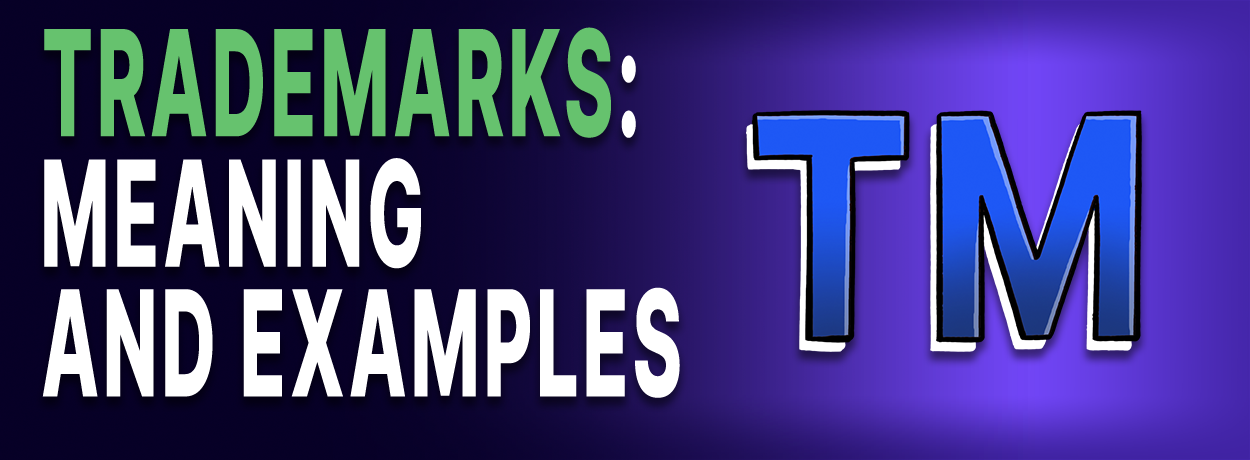
A trademark is a word, phrase or symbol that designates the source of a good or service—think Nike for sneakers, or Louis Vuitton for handbags. In the music business, trademarks are artist or band names (Lady Gaga), musical instrument brand names (Fender), and company names (Universal Records).
Trademarks are a unique form of IP because a trademark owner's rights come from actually using it commercially. Trademarks are supposed to protect consumers from purchasing a product or service that they think is coming from someone else. Just like you wouldn't want to drink Coke made in someone's apartment if you thought it was Coca-Cola, you'd probably be upset to buy a ticket to see “Fleetwood Mac” to find out it was a polka band of the same name.
Trademarks are also only filed for certain categories of goods and services. For example, Pandora is used for both a jewelry company, and an internet radio and music streaming service.
What is the difference between trademark and copyright?
In order to maintain a trademark, its owner must continue to use it. This differs from a copyright. You could write and record a great song and whether or not you released it, you would still own copyrights in the sound recording and the musical composition.
Trademark applications are filed with the United States Patent and Trademark Office (“USPTO”). When an application is filed, the applicant must either be using it actively in commerce, or plan on using it in the foreseeable future, which is referred to as “intent-to-use.”
Unlike copyrights, which last for a specific period of time, trademarks can last as long as they continue to be used in commerce. Who knows, the members of Foreigner and their heirs, could be on tour forever.
Patents
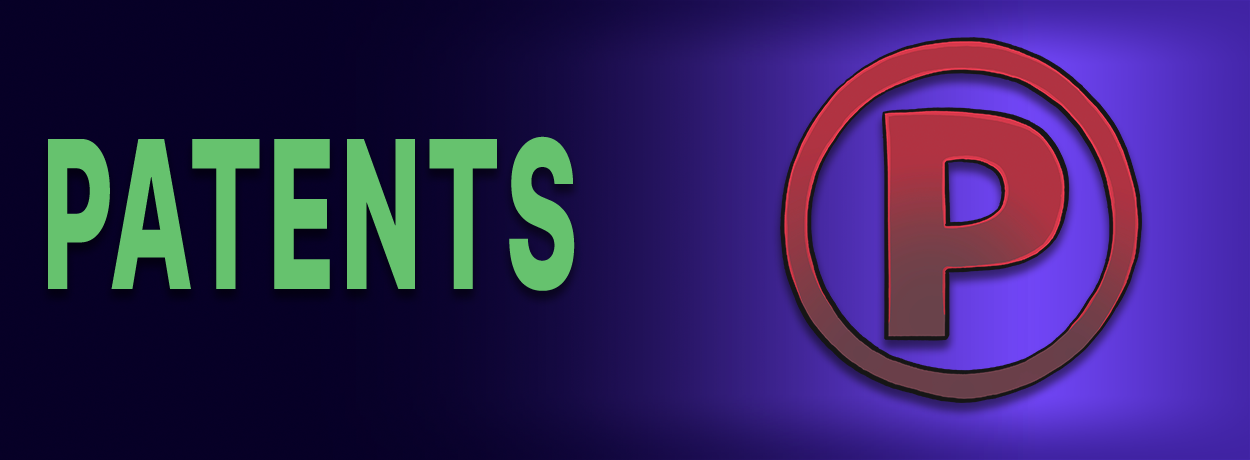
Patents are property rights, which are considered “negative rights”—patent owners can exclude other people from making or using their inventions. In the music business, patents typically deal with technology and musical instrumentation.
The two main types of patents applicable to the music industry are: 1) utility patents, which cover the functional aspects of a device or process (such as a tremolo bar, a guitar pickup, a bridge, etc.,); and 2) design patents, which cover the appearance of items, such as the shape of a guitar.
Patents last for 20 years from their initial filing with the USPTO.
The bottom line is that intellectual property plays a fundamental role in the music industry. IP protects the artistic creations of recording artists and songwriters and the use of IP is one of the primary ways in which artists and songwriter derive income from their creative works.
The principal forms of IP in the music business, copyrights, trademark, and patents, deal with written and recorded music, band and brand names, and inventions. Before signing any agreement concerning IP in the music business, you should consult an intellectual property music lawyer.
To learn more about intellectual property as it relates to the music industry, I recommend visiting Creative Intell Academy and investigating their Intellectual Property Overview course. There you will get more detail on the issues discussed above and a gain a truly comprehensive understanding of how copyright law and intellectual property ownership essentially drive the entire music industry.
In full transparency, I'm part of the team who developed the course, and I can humbly say I believe it's one of the best introductions to intellectual property and its role in the music business that you'll find anywhere.
Disclaimer language:
Creative Intell is not affiliated, nor associated in any way, with any third parties referenced herein, nor their respective goods or services. Any and all third-party tradenames, trademarks, and/or service marks referenced are used for informational purposes only, and are the exclusive property of their respective trademark owners.





